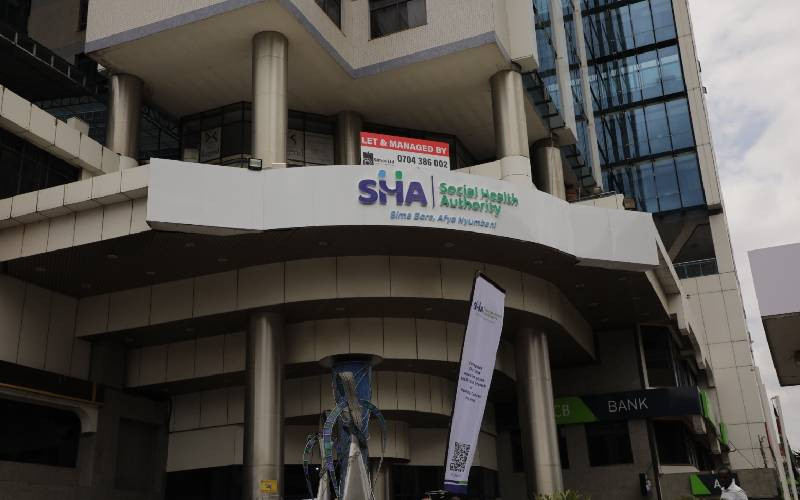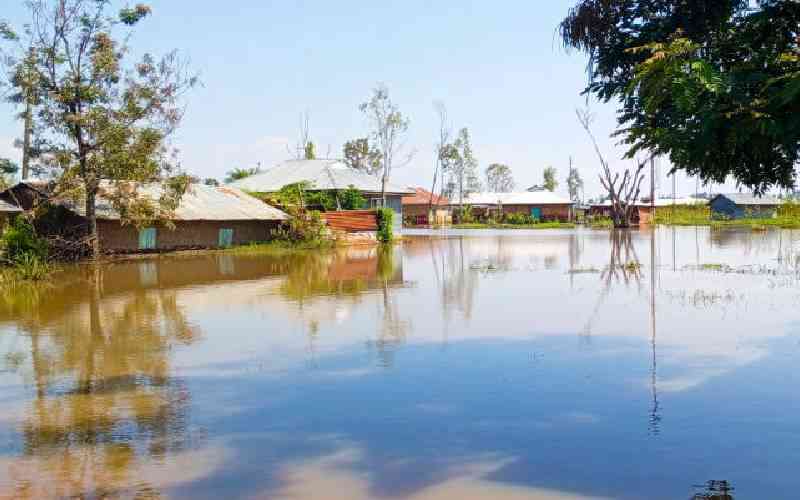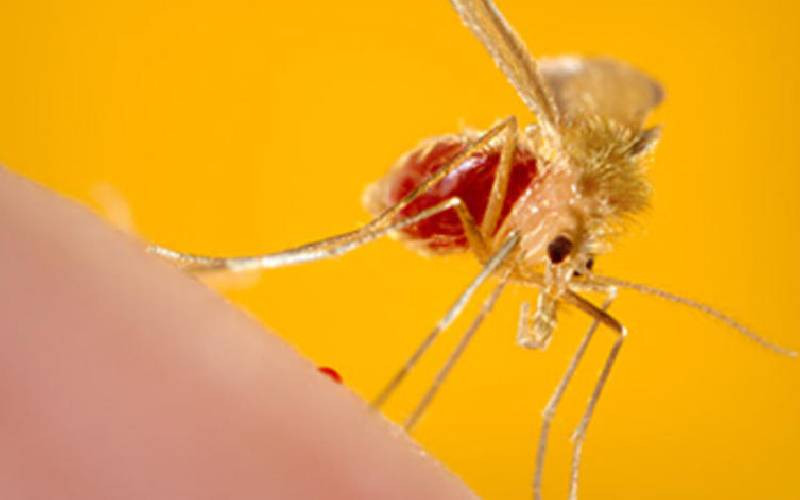 Health workers from Manyatta in Embu County and Kenya Medical Stores Authority staff attend to school children at Grogan slums, last month. [PHOTO: FILE/STANDARD]
Health workers from Manyatta in Embu County and Kenya Medical Stores Authority staff attend to school children at Grogan slums, last month. [PHOTO: FILE/STANDARD]
NAIROBI, KENYA: Researchers have discovered an effective and affordable drug for fighting jiggers which could replace the current method of physical removal of the parasite.
Working with two groups of children from Gatundu North in Central Kenya, the experts say when applied early, the chemical dimeticones weakens the parasites within three days and by the end of the week they are dead.
The team from the Nairobi-based African Population and Health Research Centre, and the Charite´ University Medicine in Berlin, Germany and others from Sweden say the chemical has proven effective in controlling head lice in Europe and hence were testing whether it could do the same with jiggers.
The team tested the drug on 47 infected children from Kiamwangi and Ikuma public primary schools in Gatundu North, according to the study published on Thursday in the journal Plos Library.
Dimeticones was tested alongside the drug KMnO4 currently being used by Ahadi Kenya Trust to treat jiggers in Kenya. The researchers conclude although this was a small study, the drug showed high effectiveness in treating the sand flea disease.
"The treatment can be performed by the patient himself with minimal input from the health workers. Hence, surgical extraction with all its associated complications is no longer warrantable," says the study.
When applied early, it kills the flea's ability to expel eggs into the environment which would mean less transmission to other people. More than 90 per cent of fleas attacked with dimeticones, says the study, showed an abnormal development indicating no eggs are produced or released to the environment.
The drug was found to be more than twice as effective as current treatment that mainly involves commercial disinfectants. A survey carried out in Kwale at the coast by the Kenya Medical Research Institute showed about 86 per cent of infested people removed jiggers using unsterilised thorns or needles.
The jiggers flea, also known as sand flea, Chigoe or scientifically as Tunga penetrans survives best in sandy and dusty environments but has received little attention from health authorities. A survey published in March and carried out by public health officers and two US universities in the then Murang'a North District found majority of residents consider jiggers a nuisance rather than a health condition.
They estimated about 2.6 million Kenyans suffer from tungiasis resulting from jigger infestation. Tungiasis, they say, is a common problem among people who live in Mt Kenya, Western Kenya, Rift Valley and coastal regions.
"We propose that a multi-sectorial approach may be the most appropriate way to address each of the core factors such as poor housing, illiteracy, age and geographical locations," the team led by Prof Thomas Matenjwa Kamau of Ohio University, US, wrote.
 The Standard Group Plc is a multi-media organization with investments in media platforms spanning newspaper print
operations, television, radio broadcasting, digital and online services. The Standard Group is recognized as a
leading multi-media house in Kenya with a key influence in matters of national and international interest.
The Standard Group Plc is a multi-media organization with investments in media platforms spanning newspaper print
operations, television, radio broadcasting, digital and online services. The Standard Group is recognized as a
leading multi-media house in Kenya with a key influence in matters of national and international interest.











